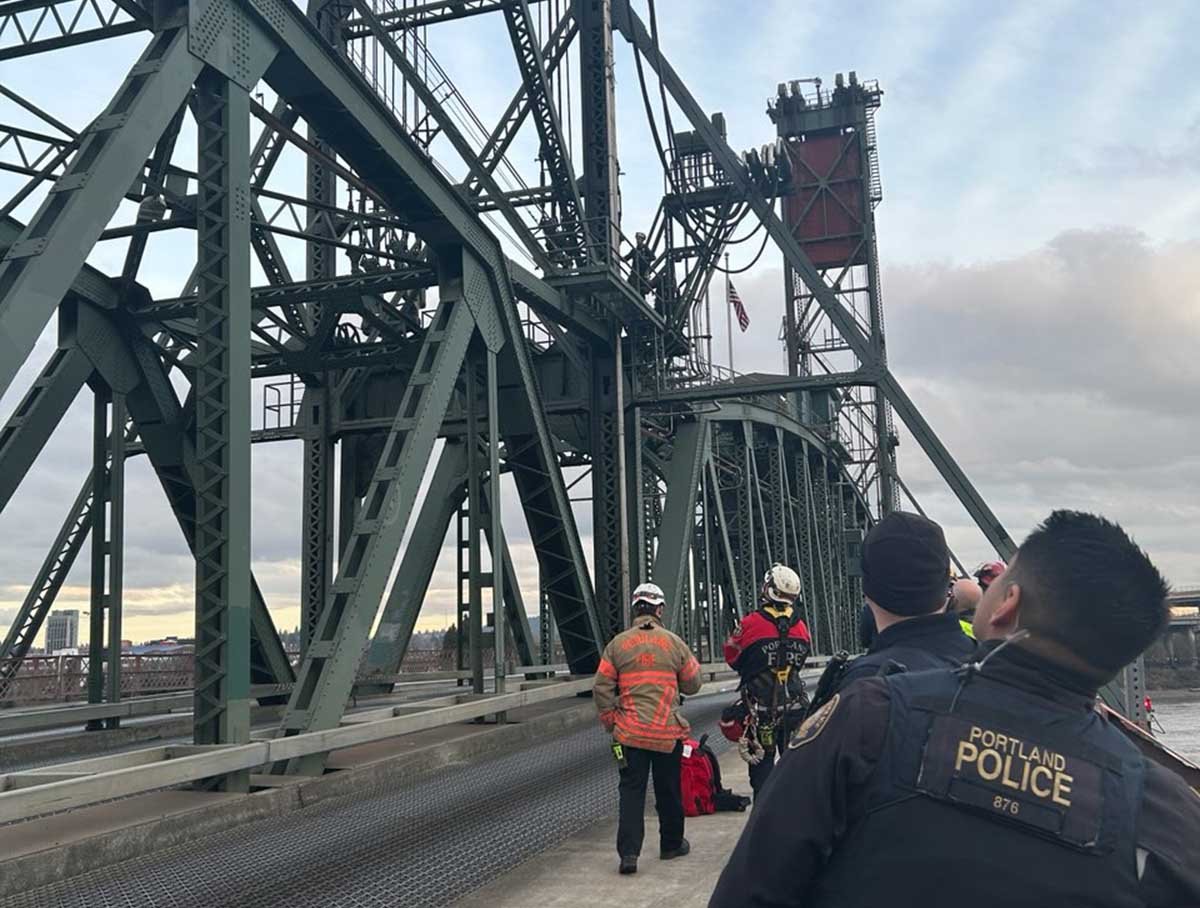Portland Man’s Nightlong Bridge Standoff Shuts Down Hawthorne Traffic Despite Police Intervention

PORTLAND, Ore. — Portland’s Hawthorne Bridge experienced an extended shutdown on Thursday, February 20, after a man, Rashawn L. Anderson, 44, climbed into the bridge structure and refused to cooperate with police, who attempted to get him to safety.
The man was subsequently attested and is facing relatively minor charges.
Hawthorne Bridge Closed Overnight After Man Refuses To Climb Down
Portland Police officers from Central Precinct responding to a report received on Thursday at 4:20 p.m., indicating someone was climbing one of the towers of the Hawthorne Bridge, found a man up on one of the bridge catwalks.
The bridge was closed to traffic as the Portland Police Bureau (PPB) dispatched specially trained crisis communication volunteer officers assigned to the Enhanced Crisis Response Team (ECIT) over concerns for the man’s mental health. Multnomah County brought in signage to prevent traffic from accessing the bridge.
Portland Police Bureau officers receive basic Crisis Intervention Training and annual CIT refresher training.
Collaborating with Portland Fire & Rescue (PF&R) to ensure everyone’s safety, officers offered Anderson several chances to come down without facing criminal charges. They offered him medical help with the aid of PF&R safety harnesses.
They also warned him of potential criminal charges and other options to address the situation. Still, these were considered too dangerous for the man and the responders.
Notwithstanding several hours of attempts, Anderson refused to descend. Officers backed off and allowed him time and space, using time as a de-escalation tactic. Anderson stayed on the bridge all night. On Friday, he came down on his own and was then arrested. After Multnomah County had inspected the bridge for safety, it was reopened at 9:30 a.m.
Anderson was booked into the Multnomah County Detention Center on charges of Criminal Trespass in the First Degree, Interfering with Public Transportation, and Disorderly Conduct in the Second Degree.
ECIT officers have additional training that enables them to identify risks during a behavioral crisis, utilize crisis communication techniques to help de-escalate a person in crisis, and know of available community resources.
Police confirmed that the Portland Police Bureau’s Behavioral Health Unit (BHU) website has additional resources for persons who find themselves or others in crisis.
